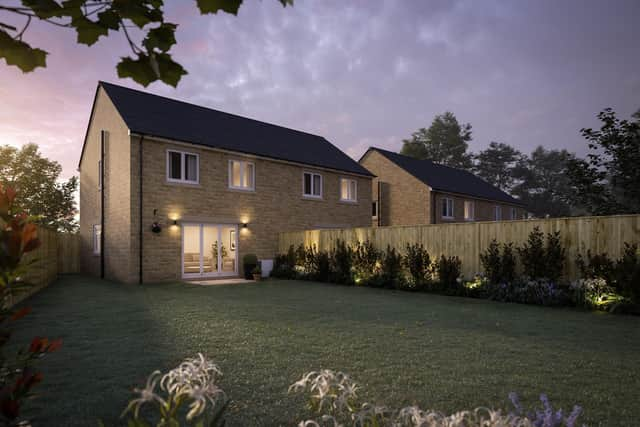Developer Andrew Mason on artificial intelligence and the future of housebuilding
Developer Andrew Mason is sanguine on the subject. In his view AI will have its place and may help the property industry to streamline or speed up some of the processes which can hinder the progress of homes heading for the market.
Examples of this would be environmental profiling,which measures the impacts of a construction material, product or building system throughout its lifetime, from extraction, processing, maintenance and its eventual disposal.
Advertisement
Hide AdAdvertisement
Hide AdHe also thinks AI may be helpful for scheduling contractors but believes any imaginings of a dystopian “Blade Runner” world blighted by housing churned out from a digital template are wide of the mark.


“The thing is, the last perfect site with no contamination or abnormal factors for development was probably developed by the Romans. These days, there’s always some unpredictable idiosyncrasy which is likely to throw a computer programme off kilter and needs human understanding,” says Andrew.
“In my view, the key to property development in the future must be sustainability. We need an holistic approach in sympathy with the land, while seeing home building as legacy for future generations. I understand why AI is exciting and I’m sure it will have its place but AI can’t mix concrete or put one brick on top of the other.”
Andrew is practising what he preaches. His company, Throstle Nest Developments, is behind a £5m house building project on the site of the old riding school and farm at Fagley, which sits between Leeds and Bradford.
Advertisement
Hide AdAdvertisement
Hide AdEach of the 21 detached and semi-detached three-bedroom properties will have air source heat pumps ahead of the government’s ban on gas boilers, due to come into force in 2025. Other specifications include a higher-than-average B rating on every EPC, aka Environmental Performance Certificate.
Andrew, who is best known for the rejuvenation of Victoria Mills in Shipley and Bradford’s Byron Hall, says: “One thing we have banned in our company is the phrase: `Why don’t we just?’ I hate it. What we all ought to aspire to is the best we can achieve.
“I’d like to think that the properties we build, including the Throstle Nest project, are future proof and likely to still be comfortable and relevant in 100 years’ time. We have learned from the past but need to learn from the future too and to consider challenges such as climate change which are likely to lie ahead, and the need for good quality outside space that has become such a premium follow the pandemic
“At the moment, we’re all sleepwalking into a disaster so, even though it might cost more, we have an obligation to practise what we preach. That’s why none of our properties will ever use oil or gas.”
Advertisement
Hide AdAdvertisement
Hide AdThe son of joiner, Mr Mason first left school with no O levels but returned to education to sit A levels and then attended university to study for a degree in economics and politics.
Further education inspired him to travel, and he spent time in Soweto on the outskirts of Johannesburg in South Africa, in Paraguay, Panama and in the favelas of Brazil. His experiences abroad fostered an understanding of issues faced by less-fortunate societies and how they might be solved.
Those principles are now an essential part of the environmentally focused family business he founded 20 years ago. “One of the most important things I learned overseas is how other societies still re-use and mend rather than throwing things away and those principles ought to apply when it comes to development,” says Andrew.
“Our company will never build on greenfield land but will either redevelop listed buildings or look for brownfield sites. I’m totally in favour of progress and some of the materials we use in modern projects are incredible, including fire-retardant foam insulation."
Advertisement
Hide AdAdvertisement
Hide AdWhile AI might be a new buzzword, Mr Mason says he will always remember a conversation he had with a taxi driver in Brazil: “When I asked him how he felt about the international environmental summit in1992, he pointed out rich nations had come to South America advocating protection of the rainforest having cut down most of their own forests and yet failed to support local populations in transition to more sustainable production.
“As a result, we need to think planetary, environmentally, sustainably and with legacy. We need to share what we have learned and to pass on the building blocks to those who will be the curators of the future so, while AI is bound to have its place, there is also much to learn and to retain from the past.
*The houses at Fagley are for sale via www.linleyandsimpson.co.uk